نسخة من الحكم&
القاضي دينغيمانز& 1. هذا ادعاء بالتشهير قدمه المدعي صاحب السمو الأمير مولاي هشام بن عبد الله العلوي من المغرب (مولاي هشام) ضد شركة ايلاف المحدودة للنشر (إيلاف) بالارتباط مع مقالة نشرتها بالعربية على موقعها الاخباري في 8 و9 تشرين الأول (أكتوبر) 2014. وإيلاف هي شركة مسجلة في انكلترا وويلز. أُزيلت المقالة بعد شكوى قدمها محامو مولاي في 9 تشرين الأول (اكتوبر) 2014.& 2. صدرت اجراءات القضية في 10 تشرين الأول (اكتوبر) وقُدمت "تفاصيل الادعاء" في 8 كانون الأول (ديسمبر) 2014. وأُرفقت ترجمة مصدَّقة للمقالة بتفاصيل الادعاء، والطلب مقدم على أساس هذه الترجمة. 3. تقدم إيلاف طلبا تريد فيه اصدار قرار بأن الكلمات المشار اليها في الفقرة 3 من تفاصيل الادعاء لا يمكن ان تحمل ( أ ) المعاني التشهيرية المقدمة في الفقرتين 6 1 الى 6 3 من تفاصيل الادعاء ( ب ) أي معنى تشهيري بمولاي هشام و( ج ) إسقاط الادعاء واصدام حكم مقابل لصالح إيلاف.& 4. كان هناك، في البديل، طلب قضية اولية بشأن المعنى الحقيقي للكلمات. ولكن هذا لم يحدث في جلسة الاستماع عندي. وكان ذلك لأن القضية الأولية لتحديد المعنى الفعلي وما إذا كان المعنى تشهيريا (مقابل ما إذا كانت الكلمات قادرة على حمل أي معنى تشهيري) سيثير قضايا حول ما إذا كان القول "تسبب أو من المرجح ان يسبب أذى بالغا" بسمعة المدعي في اطار معنى القسم 1 من قانون التشهير 2013. حدث النشر على الانترنت وكانت أرضية مشتركة ان تكون هناك أدلة ذات صلة يمكن عرضها عن سعة النشر على الانترنت.& 5. لذا ينبغي ان أُشير الى ان هذا طلب يتعلق بما إذا كانت الكلمات قادرة على حمل معنى تشهيري. لذا فان مهمتي هي "استباق الإصرار"، انظر قضية روفوس ضد اليوت [2015] EWCA Civ 121 الفقرة 8. 6. بعد المرافعة وقبل اصدار الحكم أُخطرتُ بأن الفرقاء قد يكونون قادرين على حل القضايا وطُلب مني تأخير اصدار حكمي. ثم أُبلغت بأن الفقراء لم يتمكنوا من تسوية القضايا وبذلك أُصدر الحكم.& & & & & & المقالة& 7. المقطع ذو العلاقة من المقالة مع ارقام الفقرات للمساعدة في الإشارة، وارد أدناه:& "مستخدما الملاكم السابق زكريا مومني في مؤامرة مدبرة": مكيدة مولاي هشام للايقاع بمنير الماجدي& [ 1 ] لا يترك مولاي هشام فرصة من دون أن ينتهزها لتخريب صورة العاهل المغربي محمد السادس، وآخرها مكيدة استعمل فيها الملاكم السابق زكريا مومني، ليوقع في حبائله منير الماجدي، مساعد الملك المغربي وأحد مستشاريه. [ 2 ] بيروت: كل ما يصيب المغرب، فتش دائمًا عن مولاي هشام. هذه مقولة تزداد تفشيًا في أروقة قصر العائلة العلوية، بسبب المكائد التي لا يتوقف ابن عم الملك محمد السادس عن نسجها، وآخرها مكيدته للإيقاع بمنير الماجدي، المساعد المقرب جدًا من العاهل المغربي. [ 3 ] فالتقارير تروي أن مولاي هشام التقى الملاكم المغربي السابق زكريا مومني يوم 26 حزيران /يونيو الماضي، في فندق فوكيه في باريس، ليحثه على مقاضاة الماجدي أمام المحاكم الفرنسية، بتهمة التهديد بالقتل. وطلب مولاي هشام من مومني أن يُبقي القضية سرية، لينال من الماجدي عنوة حين يأتي إلى فرنسا. [ 4 ] وكان مولاي هشام وجه ضربة مماثلة في شباط /فبراير الماضي لعبد اللطيف حاموشي، رئيس جهاز مكافحة التجسس المغربي، الذي استدعاه القضاء الفرنسي للتحقيق بينما كان مقيماً في منزل السفير المغربي في باريس. وكان لهذه المسألة اثر سلبي على مسار العلاقات المغربية الفرنسية. [ 5 ] يصر مومني على أن اللقاء "المزعوم" حصل بالصدفة ليس إلا، وهو الرد الذي همس به مولاي هشام في أذن مومني. وهذا الأخير يحاول جاهدًا عدم الاجابة عن سؤال جوهري هو الفارق الأكيد بين اللقاء الصدفة، الذي يدعيه، وبين الاجتماع الذي طال نصف ساعة. لكنه يعترف، بلا مواربة، بأنه التقى مولاي هشام وحرمه في فندق فوكيه، لأنه ينزل هناك، وصادف أن الأمير العلوي ينزل في الفندق نفسه.
& & & & & & & & صدفة أو مؤامرة! [ 6 ] قلة تصدق رواية اللقاء الصدفة، خصوصًا أن مولاي هشام معتاد على النزول في فندق جورج الخامس فور سيزونز، الذي يملكه قريبه الأمير السعودي الوليد بن طلال، حين يأتي الى باريس. وفي الشارع نفسه، يقع فندق فوكيه، حيث تم اللقاء. [ 7 ] وتورد تقارير إخبارية بعض التفاصيل الدقيقة لهذا اللقاء، فتروي ان الأمير المغربي تكلم كثيراً، بينما أمضى مومني نصف الساعة مصغياً بانتباه. وحرض مولاي هشام الملاكم السابق على القول، في كل مناسبة واينما حل، إن منير الماجدي، السكرتير الخاص للملك المغربي، هدده بالقتل في فرنسا، وعلى تقديم شكوى قضائية ضد الماجدي، كما امده بمعلومات عن أشخاص يساعدونه في ذلك، طالبًا منه الاتصال بهم. [ 8 ] أما مومني نفسه، فهو بطل العالم بنوع من الملاكمة التايلندية، تدعى "لايت كونتاكت"، ويستفيد من مرسوم اصدره العاهل المغربي الراحل الحسن الثاني بتعيينه مستشاراً رياضياً للمغرب، على الرغم من أن الرياضة التي يمارسها ليست مدرجة بين الرياضات المعترف بها أولمبياً. كما حصل مومني، في العام 2006، على إذنين لتشغيل سيارتي أجرة كبيرتين، والاستفادة من مداخيلهما. واحدة باسمه واخرى باسم والده. وهكذا، يطلق الرجل النار على أعلى مراكز المملكة التي يستفيد من أعطياتها، كمن يشرب من بئر ثم يرمي فيها حجرًا..." & & & & & & & & & & & & المعاني المقدمة والطعون ذات العلاقة جرت المرافعة نيابة عن مولاي هشام بأن المعنى الطبيعي والاعتيادي للكلمات كان:& "(1) ان المدعي دبر مؤامرة لتخريب صورة العاهل المغربي الملك محمد السادس حيث قام خلال لقاء مدبر سلفا في فندق فوكيه في باريس بتاريخ 26 حزيران/يونيو 2014، بحث زكريا مومني على ( أ ) إطلاق مزاعم كاذبة ضد منير الماجدي المساعد المقرب من العاهل المغربي، بأنه، أي الماجدي، هدد بقتل مومني و( ب ) رفع دعوى جنائية ضد الماجدي على اساس مثل هذه المزاعم الكاذبة لالقاء القبض على الماجدي في فرنسا.& (2 ) ان المدعي حث المومني على الكذب للتستر على المؤامرة بالإدعاء كذبا ان لقاءه مع المدعي في فندق فوكيه كان صدفة.& (3) ان المدعي دبر مؤامرة مماثلة ضد عبد اللطيف حاموشي رئيس جهاز مكافحة التجسس المغربي، في شباط/فبراير قبل هذا، اسفرت عن استدعاء القضاء الفرنسي الحاموشي للتحقيق معه، وبالتالي كان المدعي مسؤولا عما ترتب على ذلك من أثر سلبي على العلاقات الفرنسية المغربية.& 9 محامي الدفاع عن مولاي هشام السيد راشبروك شدد بصفة خاصة على تلك الكلمات من المقالة التي قيل انها تؤثر في نظرة القارئ بأكملها، ومن ذلك: "استخدام"، "مدبرة"، "مؤامرة"، "مكائد" "الايقاع بحبائله"، "مكيدة" "تخريب". وقيل ان دلالة ذلك بالنسبة لأي قارئ عاقل ان مولاي هشام كان يدفع مومني الى تقديم أدلة كاذبة ضد مساعدين للملك، أو شجع مومني على تقديم أدلة لم يبد مولاي هشام اهتماما بما إذا كانت صادقة. وقيل ان المقالة أوحت بأن مولاي هشام، بوصفه اميراً، كان يعمل ضد مصالح الملك بتشجيع أشخاص على نقل أمور ضد المساعدين، وان هذا كان تشهيريا.& 10 ذهب السيد غلين الموكل من ايلاف الى ان المقالة لا يمكن ان تحمل المعنى القائل ان مولاي هشام شجع السيد مومني على اطلاق مزاعم "كاذبة"، وان ادعاء الكذب اساسي في كل المعاني موضع الشكوى المرفوعة نيابة عن مولاي هشام. وقيل ان من الجائز ان مولاي هشام في الحقيقة لم يشجع السيد مومني على اطلاق المزاعم ولم يكن يعمل ضد الملك ولكن هذا سيبين ببساطة ان المقالة مخطئة ولكنها لا يمكن ان تكون تشهيرية بقولها ان شخصا يعارض حكم الملك لأن هذا يعتمد على ما يُحمَل من رأي بالملك والملكية.& 11 رافع السيد راشبروك بأن المعاني تشهيرية حتى إذا لم يكن مولاي هشام يعرف ان المزاعم كاذبة لأن من التشهير القول انه شجع على اطلاق مزاعم دون ان يهتم بما إذا كانت كاذبة. وأُشير الى المراسلة التي سبقت الدعوى والإيحاء بأن لسعة المقالة كانت ان مولاي هشام يعمل ضد مصالح ملك المغرب. وكان هناك نقاش في مرافعات حول ما إذا كان من التشهير القول ان الأمير يعمل ضد مصالح الملك.& & & & & & مبادئ قابلة للتطبيق& 12 المبادئ التي تُطبق على طلبات من هذه الطبيعة مبادئ ثابتة. ولخصها السير انتوني كلارك في قضي جينز ضد شركة نيوز ماغازين لمتد [2008] EWCA Civ 130 في [14]: تُلخص المبادئ القانونية ذات الصلة بالمعنى على النحو الآتي: ان المبدأ الحاكم هو المعقولية. 2) ان القارئ العاقل الافتراضي ليس ساذجا ولكنه ليس شكوكيا بلا مبرر. وانه يستطيع ان يقرأ بين السطور، ويستطيع ان يقرأ دلالة ما بيسر أكبر مما يستطيع محام وقد يمارس قدرا من التفكير الفضفاض ولكنه يجب ان يُعامل على انه انسان لا يبحث عن فضائح وشخص لا ينتقي وينبغي ألا ينتقي معنى سيئا واحدا حيث تتوفر معان أخرى غير تشهيرية. 3) يُفضل تفادي التحليل المستفيض بإفراط. 4 ) ان نية الناشر لا تمت بصلة الى الموضوع. 5) ان المقالة يجب ان تُقرأ ككل وان "يؤخذ السم والترياق معا". 6) يعتبر القارئ الافتراضي ممثلا لمن يقرؤون المطبوع ذا العلاقة. 7) في تحديد نطاق المعاني التشهيرية الجائزة، على المحكمة ان تستبعد أي معنى "لا يمكن ان يظهر إلا نتاج تأويل مضغوط أو مفروض أو غير معقول بالمرة...."... 8) يستتبع من ذلك انه "ينبغي ألا يُقال ان هذا الشخص أو ذاك قد يفهم الكلمات بمعنى تشهيري".& 13 هناك عدد من التعريفات المعروفة لمعنى كلمة "تشهيري". وقال السير توماس بنغهام في قضية سكوس ضد شركة تلفزيون غرانادة المحدودة [1996] EMLR278 في 286: "ينبغي ان يُعد القول تشهيريا إذا كان يميل الى الانتقاص من المشتكي في تقدير افراد المجتمع ذوي التفكير السليم أو من المرجح ان يؤثر في الشخص سلبا في تقدير العقلاء عموما".& 14 يترتب على ذلك انه لا يكفي ان تضر الكلمات بالمدعي بنظر قطاع فقط من الجمهور، انظر قضية مودي ضد كلارك [2011] EWCA Civ 937. ولا يكون تشهيرا بالشخص القول انه يرغب في تدمير بنية لعبة الكريكيت العالمية ن لأن هذا يعتمد على آراء ذلك القطاع من الجمهور المهتم باللعبة على اساس بنيتها الحالية، انظر الفقرة 30. ويعكس هذا فقه ستراسبورغ الذي يشدد على الهامش الممنوح لإطلاق أقوال عن شخصيات عامة وقضايا سياسية حيث يمكن ان تكون لدى اشخاص عقلاء آراء مختلفة جدا بأفعال الحكم وأنظمته، انظر قضية لينغنز ضد النمسا (1986) 8 EHRR 407 الفقرة 41 وتحليل قضية كوران ضد شركة ديلي ريكورد وصندي ميل المحدودة [2011] CSIH 86 الفقرتان 51 و53.& 15 من المناسب ايضا ملاحظة ان الادعاء قُدم بالارتباط مع "المعنى الطبيعي والاعتيادي" للكلمات وليس بمعنى التلميح أو الايحاء. والمعنى الطبيعي والاعتيادي لا يتطلب اسنادا من حقائق خارجية تتعدى حدود "المعلومات العامة" أو "قضايا صيت سيئ عام" أو "قضايا قد يعرفها أي مشاهد أو قارئ عاقل".& أدلة&
كان هناك عدد من افادات الشهود في الحزمة التي أمامي. ومن هذه افادات شهود نيابة عن المدعَى عليه من دومنيك كروسلي واندرو ويلان وافادات شهود نيابة عن المدعي من مولاي هشام ونيكول دوسيت.& 17 كان بعض هذه الأدلة يتعلق بقضايا لم تكن امامي، مثل الحاق أذى خطير، وبعضها يتعلق بقضايا زُعم ان "أي قارئ عاقل" لموقع ايلاف سيعرفها. ورافع السيد غلين بأن مثل هذا القارئ يعرف انه كانت هناك معارضة سياسية للنظام المغربي بشأن الربيع العربي، وان تساؤلات أُثيرت عن سجل المغرب في مجال حقوق الانسان. ورافع السيد راشبروك بأن المقالة نفسها أعطت السياق المناسب ولا حاجة لأي شيء آخر.& 18 في حكمي ان المواد المقدمة في افادات السيد كروسلي والسيد ويلان تذهب ابعد مما يُعرف على انه القارئ الاعتيادي لموقع ايلاف، بما في ذلك مقتطفات من كتب ومقالات سابقة. وهذه المواد لا تمت بصلة الى اغراض البت في القضية التي امامي. ويصح الشيء نفسه على مواد قُدمت في افادة مولاي هشام التي أيضا تضمنت تفاصيل عن السبب في قول مولاي هشام ان المقالة خاطئة وغير دقيقة. وفي حكمي فان أي قارئ عاقل افتراضي لايلاف يعرف، كمسألة معلومات عامة، ان هناك نظاما ملكيا في المغرب وان الملك هو حاكم المغرب. وقد يُلاحظ ان هذا الجزء يظهر من المقالة في كل الأحوال.& 19 قامت نيكول دوسيت بالترجمة الأصلية للمقالة. وقدمت أدلة فيها كلمات بديلة للكلمات المترجمة، وأعطت تأويلها هي للمعنى. ولكن دليلها لم تكن له صلة بالقضية التي أمامي. وهذا لأنه كانت هناك ترجمة مع "تفاصيل الادعاء" والإدعاء مقدم على اساس تلك الترجمة التي قُبلت، ولأن رأي دوسيت بما تعنيه المقالة ليس دليلا مقبولا.& 20 في النهاية نظرتُ في هذا الطلب على أساس المقالة وترجمتها الأصلية. وقد تكون المواد الأخرى في افادات الشهود ذات صلة بطلبات أخرى ولكنها لم تساعدني في تحديد "وجاهة" الطلب. قراري&
21 ان جميع الكلمات التي سلط السيد راشبروك الضوء عليها وقدمها في الفقرة 8 اعلاه ذات صلة بالمعنى الذي سيعطيه القارئ العاقل الافتراضي للمقالة. ولكن في حكمي ان القارئ العاقل لن يقرأ المقالة على انها تقول ان مولاي هشام حقا حث زكريا مومني أو أي شخص آخر على اطلاق مزاعم "كاذبة" ضد الماجدي لكي يتعرض الى الاعتقال. وهذا لأن المقالة لا تتعامل مع ما إذا كانت المزاعم "كاذبة" أو ما إذا لم يهتم مولاي هشام بما إذا كانت المزاعم صادقة، وان المقالة تتعامل مع دور مولاي هشام في التشجيع على تقديم شكاوى. بل بقدر ما يجري التعامل مع القضية فان المقالة تقول ان مولاي هشام "لا يترك فرصة" لتخريب صورة الملك، الأمر الذي يشير الى ان مولاي هشام استغل حقائق اصبحت معروفة له. ولا يبين استخدام كلمات "مؤامرة مدبرة" أو "مكيدة" سوى انها كانت مخططة وليست مفبركة. وحقيقة إبقاء القضايا سرية لا تشير الى انها كاذبة.& 22 تقول المقالة ان مولاي هشام حث مومني على مقاضاة مساعد مقرب من الملك المغربي بتهمة التهديد بالقتل، وانه وجه ضربة مماثلة ضد عبد اللطيف حاموشي، رئيس جهاز مكافحة التجسس. وتشير المقالة الى ان هذا كان جزء من حملة لتخريب صورة الملك ويبدو ان الخط الذي تتخذه المقالة هو ان مثل هذه المقاربة مقاربة خاطئة. ولكن هذا يتوقف على آراء ذلك القطاع من الجمهور المهتم بالسياسة في المغرب. وفي حكمي لا يمكن ان يكون تشهيرا بأحد حين يُقال انه يعمل ضد مصاح حاكم، لأسباب معطاة في قضية مودي ضد كلارك. وينبغي ان أُسجل بأني أفهم توجسات مولاي هشام بشأن المقالة وهو الذي ينفي ان تكون المقالة دقيقة أو انه يعمل ضد مصالح الملك، ولكن المقالة غير الدقيقة ليست بالضرورة مقالة تشهيرية. ولهذه الأسباب مجتمعة فان حكمي ان الكلمات غير قادرة على حمل المعاني التشهيرية المذكورة في الفقرتين 6 1 و6 3 من "تفاصيل الادعاء" (والواردة في الفقرة 8 اعلاه).& 23 في حكمي ان الموقف يختلف بشأن الفقرة 6 2 من تفاصيل الادعاء. فالقارئ العاقل قد يخلص الى ان المقالة قالت ان مولاي هشام أوعز الى السيد مومني بالكذب عن حدوث اللقاء صدفة. وهذا بسبب الكلمات القائلة "ولكن هذا هو الرد الذي همس به مولاي هشام بأذنه" والعنوان القائل "صدفة أو مؤامرة؟" وعبارة ""قلة تصدِّق رواية اللقاء الصدفة... "فهذا المعنى قادر على ان يكون تشهيريا بمولاي هشام لأنه يوحي بأنه كذب. وفي حكمي ان هذا المعنى لا يعتمد على إدعاء الكذب فيما يتعلق بالمعاني في الفقرتين 6 1 و6 3 لأنه يتعلق بتقرير اللقاء عن اطلاق مزاعم، ولا يتعامل مع ما إذا كانت المزاعم كاذبة. وهو قادر على تخطي عتبة الجدية ولكن ما إذا كان قد تخطاها في ظروف هذه القضية فان هذا يمكن ان يُعالج لدى النظر في الطلبات الأخرى.& 24 كان هناك بعض الجدل حول ما إذا كانت المقالة قادرة على حمل معان أخرى تشهر بمولاي هشام ولكن لم تُقترح معان أخرى. وكانت الأرضية المشتركة اعطاء الفرقاء وقتا لدراسة هذا الحكم وأي تعديلات ممكنة على تفاصيل الادعاء قبل النظر في الطلبات المقدمة.& 25 في هذه الظروف فان قضية إصدار معكوس ليست مطروحة. ومن الصواب ان يُسجل، كما لاحظ السيد راشبروك، انه لم يجر الالتزام بالاجراءت الأصولية لدى تقديم مثل هذا الطلب.& & & & & &خلاصة 26 للأسباب المفصلة اعلاه فان حكمي ان المقالة لم تكن قادرة على حمل معان تشهيرية كما ورد في الفقرتين 6 1 و6 ـ3 من "تفاصيل الادعاء". ولكن المقالة كانت قادرة على حمل معان تشهيرية وردت في الفقرة 6 2 من تفاصيل الادعاء.& 27 اعطاء الفرقاء وقتا لدراسة هذه الحكم وأي تعيدلات ممكنة على تفاصيل الادعاء. & & & & & & & & & & & & & & & & & & & & & & & & & & & & & & & & & & & & & & & & & & & & & & & & & & & & | 





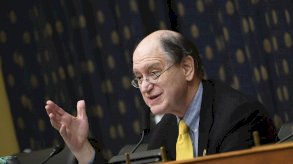

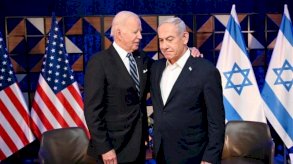
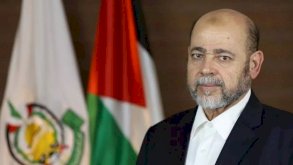
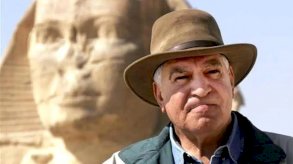
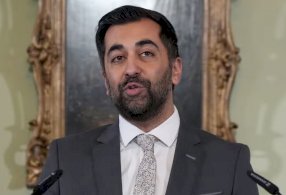
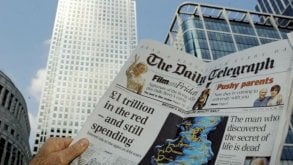




التعليقات